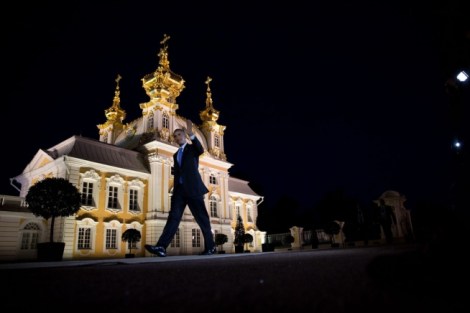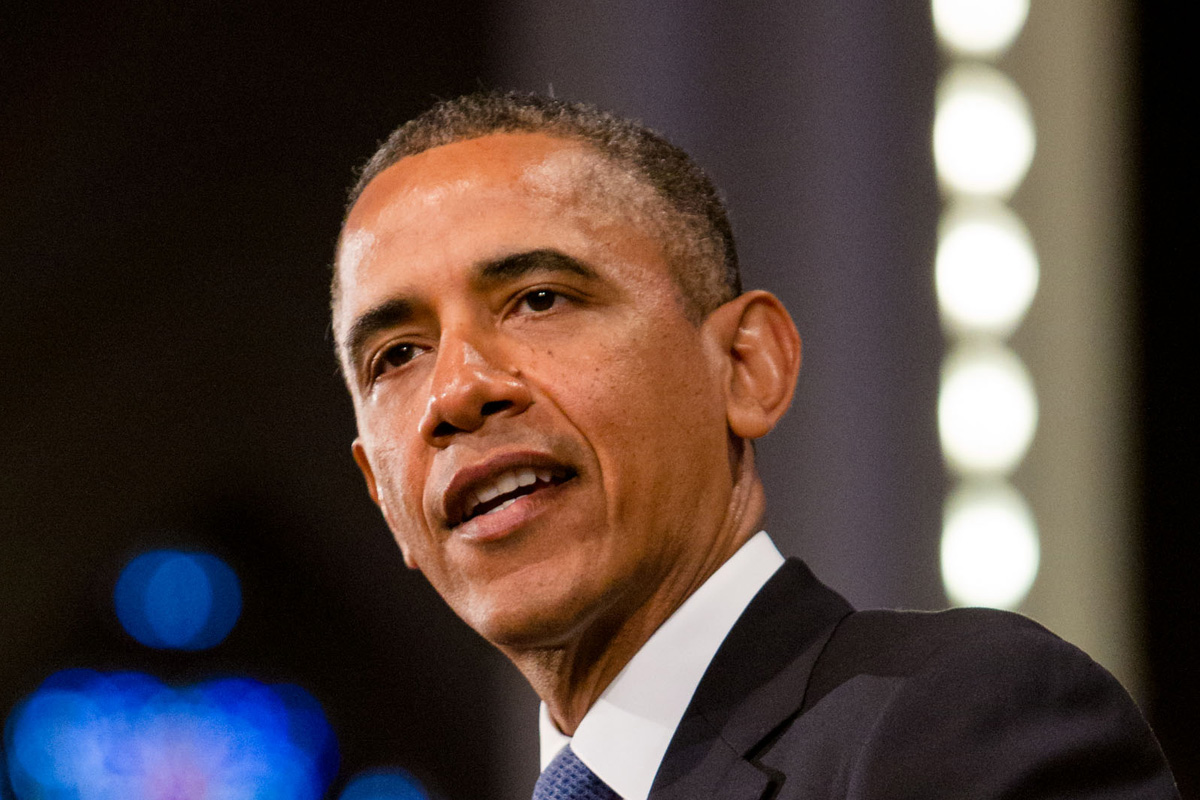Barack Obama is walking the climate-change talk — all around the world. Or at least endorsing climate-change pacts.

Lawrence Jackson, whitehouse.govObama in St. Petersburg last week.
In June, the president unveiled a climate action plan that called, among other things, for the U.S. to establish itself as a global leader on climate issues. And over the past few days, he’s shown that it wasn’t just rhetoric. Though the U.N. treaty process is going nowhere fast, the Obama administration is moving forward with smaller international climate agreements.
A commitment that Obama and Chinese President Xi Jinping made during private meetings in June to reduce climate-changing emissions of hydrofluorocarbons, or HFCs, evolved on Friday into a formal agreement between the two nations. From The Washington Post:
The United States and China announced Friday they would seek to eliminate some of the world’s most potent greenhouse gases through the 1987 Montreal Protocol, the landmark treaty that successfully phased out ozone-depleting substances decades ago.
The move, announced at the Group of 20 summit in St. Petersburg, is significant because it provides a clear path for curbing a major contributor to global warming in the near term as world leaders grapple with the more challenging task of cutting carbon dioxide in the coming decades.
And in news that’s so closely related you could be forgiven for thinking it’s exactly the same story, all of the countries at the G20 summit, including the U.S., reached a broader agreement to curb emissions of HFCs. From Reuters:
The White House cited the agreement to cooperate on phasing down the use of hydrofluorocarbons (HFCs), gases used in refrigerators, air conditioners and some industrial equipment, as one of the “most significant agreements” of the summit.
“This commitment marks an important step forward toward addressing HFCs — highly potent greenhouse gases that are rapidly increasing in use — through the proven mechanism of the Montreal Protocol,” the White House said in a fact sheet.
Meanwhile, half a world away from the G20 meeting in Russia, some encouraging news emerged from a summit of Pacific Ocean island states — some of which are at risk of sinking beneath rising seas. From Agence France-Presse:
A new Pacific regional pact calling for aggressive action to combat climate change has achieved a “major accomplishment” by gaining US support, officials said Sunday.
The Majuro Declaration, endorsed by the 15-nation Pacific Islands Forum (PIF) at their summit last week, contains specific pledges on cutting greenhouse gas emissions.
US Interior Secretary Sally Jewell announced during the session a new climate change fund for Pacific islands vulnerable to rising sea levels. …
Separately, the US was offering $24 million over five years for projects in “vulnerable coastal communities” in the Pacific, she said. …
Marshall Islands minister Tony de Brum said the US support was a “major accomplishment”.
It might be time to send the president down under to try to talk some sense into Australia’s new government.


